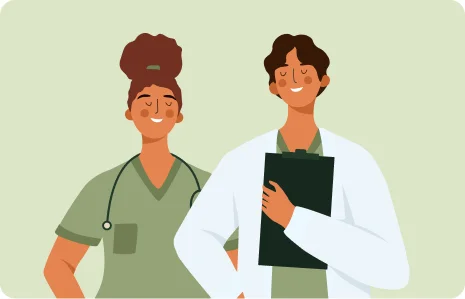In the realm of mental health treatment, certain medications have gained recognition for their ability to enhance focus and concentration in individuals with attention deficit hyperactivity disorder (ADHD). One such medication is amphetamine-dextroamphetamine, commercially known as Adderall. This blog post aims to explore Adderall, shedding light on its uses, mechanism of action, and the individuals who can benefit the most from its therapeutic effects.
What Is Adderall?
Adderall is a medication approved by the United States Food and Drug Administration (FDA) for the treatment of ADHD. It contains a combination of two active ingredients: amphetamine and dextroamphetamine. Adderall belongs to a class of medications known as central nervous system stimulants. These medications work by affecting certain chemicals in the brain to enhance focus and reduce impulsivity and hyperactivity associated with ADHD.
Why Is It Used?
Adderall is primarily used for the treatment of ADHD in both children and adults. ADHD is a neurodevelopmental disorder characterized by persistent patterns of inattention, hyperactivity, and impulsivity that interfere with daily functioning and development. Individuals with ADHD may struggle with tasks requiring sustained attention, organization, and impulse control. Adderall helps alleviate these symptoms, improving focus, attention, and overall cognitive performance.
How Does It Work?
Adderall works by increasing the levels of certain neurotransmitters in the brain, specifically dopamine and norepinephrine. Dopamine is involved in reward and motivation, while norepinephrine is associated with alertness and attention. In individuals with ADHD, there is an imbalance of these neurotransmitters, leading to difficulties in attention and focus. Adderall stimulates the release and blocks the reuptake of these neurotransmitters, helping restore the balance and enhancing cognitive function.
Who Can Benefit from It?
Adderall is beneficial for individuals diagnosed with ADHD who experience difficulties with attention, hyperactivity, and impulsivity. It can be particularly helpful for those who have tried other interventions, such as behavioral therapies, without sufficient improvement in symptoms. Adderall provides an additional tool to manage ADHD symptoms, improving overall functioning and quality of life.
It is important to note that Adderall is a prescription medication and should only be used under the supervision of a healthcare professional. The healthcare professional will assess the individual's symptoms, medical history, and potential risks and benefits to determine if Adderall is the appropriate treatment choice.
The Takeaway
Adderall represents a significant breakthrough in the treatment of ADHD, providing individuals with a medication that enhances focus, attention, and cognitive performance. By targeting the imbalance of neurotransmitters in the brain, Adderall helps individuals with ADHD manage symptoms of inattention, hyperactivity, and impulsivity. If you or a loved one are experiencing challenges related to ADHD, consult with a healthcare professional to discuss the potential benefits and risks of Adderall and determine if it is the right fit for your treatment plan.
References:
American Psychiatric Association. (2013). Diagnostic and statistical manual of mental disorders (5th ed.). American Psychiatric Publishing.
Food and Drug Administration. (2004). Adderall XR [prescribing information]. Retrieved from https://www.accessdata.fda.gov/drugsatfda_docs/label/2004/021303s005lbl.pdf
Greenhill, L. L., & Swanson, J. M. (2018). Comorbidity and its treatment in ADHD: A review of ADHD in DSM-5. The Journal of Attention Disorders, 22(1), 3-11.
Spencer, T. J., Biederman, J., & Wilens, T. E. (2020). Stimulant treatment of attention-deficit/hyperactivity disorder: An update. The Journal of Clinical Psychiatry, 81(1), e1-e19.
Wigal, S. B. (2009). Efficacy and safety limitations of attention-deficit hyperactivity disorder pharmacotherapy in children and adults. CNS Drugs, 23(Suppl 1), 21-31.








